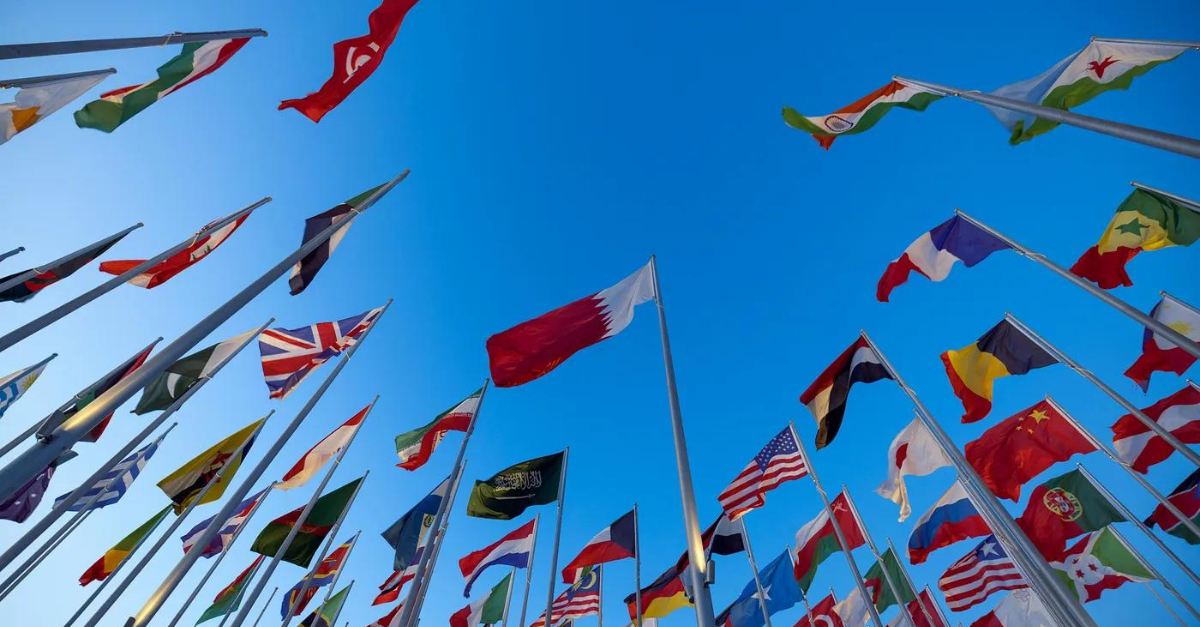While diplomacy is a long-held skill from the realm of international relations and politics as a way to manage interactions and negotiations with tact, sensitivity, and strategic acumen, so is soft power, as a way to forge meaningful relationships through non-coercive means. Reading this annual assessment got me thinking about the presence and role of soft power and diplomacy in the business world. And as Prime Ministers or Presidents, must lead, engage, and influence their connected stakeholder systems through soft power and diplomacy, so must CEOs of all types.
Consider growth-stage CEOs who may have prevailing styles often rooted in single-minded focus, drive, and unwavering vision. The need for greater leadership dexterity to serve their own connected stakeholder network, using soft power and diplomacy as the means to achieve growth goals, is more important than ever.
Soft Power and Diplomacy Are Actually Hard Skills
The term “soft power” was coined by political scientist Joseph Nye, who referred to it as the ability to shape the preferences of others through appeal and attraction rather than coercion. In business, soft power can be cast as the ability for a leader to influence stakeholders — employees, customers, investors, partners, communities — through communication and relational dynamics. Unlike hard power rooted in authority and control, soft power relies on persuasion and the cultivation of goodwill.
I became acutely aware of, and learned the art of soft power and diplomacy when I joined Time Inc. back in 1997. After ten years in the process-heavy culture of global banking, tech, and operations, where getting things done came before or usurped getting to know your colleagues, media and publishing leaders were masters of using soft power and diplomacy to drive business results in a culture where relationship building, and communications skills were everything.
How Can Growth-Stage CEOs Apply Soft Power and Diplomacy to their Stakeholder Systems?
While mastering the nuances of soft power and diplomacy across a complex web of stakeholder relationships (from board dynamics or the next round of fundraising), is essential, my personal experiences include some CEOs who were driven by hubris or enlisted a “performative” soft power approach, that achieved the opposite of their intended purpose.
Below are a few ways growth-stage CEOs can leverage authentic soft power and diplomacy.
- By learning to attract and co-opt rather than coerce, they can build a more sustained trust and credibility foundation. Through transparency, ethical behavior and a commitment to company mission, they can cultivate a reputation of reliability and trustworthiness. For potential investors or partners, committing funds to a company led by a CEO who they can trust to act in the best interests of the organization is a clear and core decision factor.
- Founder CEOs, who leverage soft power and diplomacy are more equipped to foster a modern and results-driven environment where employees are valued, motivated, and aligned. Again, this is not performative leadership, instead this is intentional leadership. For those CEOs who might like to get from point A to point B quickly, diplomacy does not have to mean slowing things down, but does lead to a more thoughtful way of showing up. For many growth stage CEO clients, adjusting to this small change can yield material benefits.
- Effective use of soft power also enhances a CEO’s ability to build rapport and demonstrate an understanding of another party’s needs and concerns, leading to a more favorable negotiation environment. Diplomacy is equally important in this context. A diplomatic approach allows the CEO to frame negotiations with mutuality and cooperation rather than anything that might resemble adversarial competition.
- A CEO with strong soft power can de-escalate tensions and diffuse conflict by addressing issues with empathy and understanding. Here, diplomatic skills are essential for finding solutions that satisfy all stakeholders.
- When taking an outside-in approach, using soft power to connect with stakeholders on a personal level can be a major difference maker. Showing genuine concern for well-being and demonstrating aligned interests is a winning combo. A diplomatic CEO resonates further by taking a more inclusive approach.
- Change management is frequently infused by soft power. When CEOs communicate vision and rationale behind change more compellingly, emotionally, and intellectually, they’re likely to garner deeper support and minimize resistance. Blending diplomacy to navigate uncertainties and anxieties is important given that many business decisions have implications across a connected stakeholder network.
- The ability to leverage networks of stakeholders is critical. True soft power is modeled by demonstrating cultural sensitivity and adaptability to gain trust and cooperation across the network. Diplomacy is essential here, in managing interactions made only more challenging by the complexities of differing regulatory environments, business practices, and cultural expectations.
The Downsides of Soft Power and Diplomacy
Like most leadership skills or traits, over-reliance or misapplication can derail best intentions. For example, soft power can be seen as a weakness, or looked on as being indecisive, especially in high-stakes or competitive environments where more assertive actions are expected. This perception can undermine a leader’s authority and influence, leading to challenges in enforcing decisions and maintaining discipline.
Soft power may also involve excessive emphasis on empathy and relationship-building making it difficult to make objective decisions. This can result in favoritism or the inability to address poor performance effectively. And in crisis, soft power may be less effective when speed and decisive action is required.
Diplomacy can often create ambiguity or mixed signals given this is nuanced communication. Stakeholders might misinterpret a leader’s intentions, leading to misaligned expectations and potential conflicts. Finally, inauthentic diplomacy can be seen as manipulative, particularly if stakeholders feel they are being handled or managed.
Calibrating One’s Personal Soft Power and Diplomacy
Not all growth-stage CEOs have the patience, natural capability, or interest to apply soft power and diplomatic skills. But it is crucial to learn and understand their use, and the needed calibration and balance. Here are a few ways to help get there:
- Complement soft power and diplomatic skills with assertiveness and decisiveness, especially in situations that require clear, immediate action.
- Maintain clear professional boundaries and standards to ensure objectivity and fairness in decision-making, while leveraging both.
- Ensure that using diplomacy does not compromise the organization’s core values. Communicate values clearly and uphold them consistently.
- Avoid ambiguity. Leaders should strive for clear and direct communication, especially when conveying key information for important decisions.
- In crisis, decisiveness matters. Use diplomatic skills to manage the aftermath rather than delay the action.
- Make sure your executive team blends leaders who are diplomatic and those who are more assertive to balance approaches and perspectives.
Recently, two growth-stage clients, a Founder/CEO and a C-level operating executive had specific opportunities put before them to develop their soft power and diplomatic skills. Each faces unique challenges around fund raising and a potential sale. Both are self-aware, but equally unaware that they can deliver greater impact by adapting some soft power and diplomacy capability to apply in these key situations. For both, driving toward mastery will require a certain degree of situational self-control and confidence-building. Learning to evolve and adapt under these high-pressure circumstances will require a uniquely deft touch that purposeful soft power and diplomacy can surely provide.


